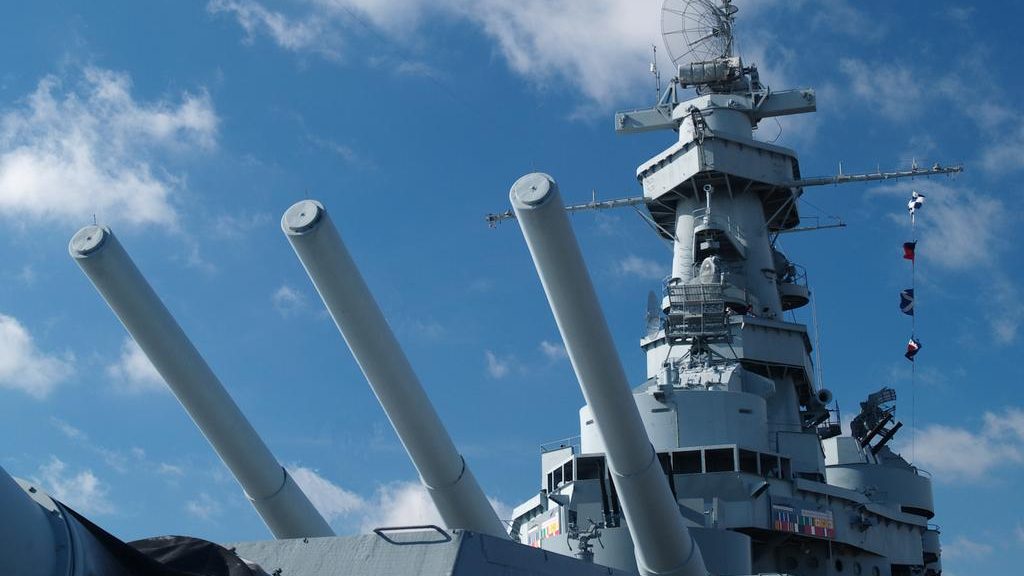Article originally published in the American City Business Journals on May 4, 2020.
People learn early in their career that when they occasionally speak with a senior leader within their organization on a substantive issue, they need to keep their boss informed so as not to violate the chain of command.
Not doing so undermines the trust their boss has in them.
So, why do some people violate or go outside the chain of command?
They feel they have no other choice, and should know their career could face adverse consequences.
We can be sure that Captain Brett Crozier, commander of the aircraft carrier USS Theodore Roosevelt, knew this when he went outside the chain of command. On March 30, he wrote a letter to 20 naval personnel using a non-secure email channel to voice his concerns about the rapid spread of COVID-19 within his ship’s 5,000 officers and crew.
Crozier wrote in his letter, “We are not at war. Sailors do not need to die.”
Crozier’s letter was leaked and made public by the news media.
Due to the tight confines of the ship, effectively quarantining those crew members who tested positive would not be possible. Crozier wanted to quarantine most of the ship’s crew in Guam where the ship was docked, leaving on board a staff of 500 for maintenance and security.
Crozier asked his superior, Rear Admiral Stuart Baker, for approval of his action plan. Baker, in turn, spoke with acting Secretary of the Navy Thomas Modly about Crozier’s plan.
Apparently, these discussions were moving too slowly for Crozier as the virus spread throughout the ship, so he wrote the letter and sent it, going outside of the chain of command.
On April 2, Modly ordered that Crozier be relieved of his command. It’s been reported that Modly was advised against doing so by the chairman of the Joint Chiefs of Staff until after an investigation was complete. Modly subsequently submitted his own resignation after he gave a speech to the Roosevelt crew in which he harshly criticized Crozier, something no effective leader would ever do.
On April 24, James McPherson, the acting Secretary of the Navy who was named as Modly’s replacement, recommended that Crozier be reinstated. This is being considered by Secretary of Defense Mark Esper.
Crozier is viewed as a hero by the crew of the Roosevelt. His letter had the intended effect. Crew members of the Roosevelt were quarantined in Guam. The first death of a Roosevelt crew member from COVID-19 occurred April 13. As of that date, it was reported that 585 crew members tested positive for the virus.
Crozier sent the letter because his conscience required him to do so. If in Crozier’s situation, would you have acted in the same way? If you were Crozier’s boss, Rear Admiral Baker, given that the stakes were the lives of those under your command, what would you have done?
During your career, you most likely will not face a life-or-death decision as did Crozier. However, you may be faced with a less consequential decision to go around or outside the chain of command. Carefully consider this decision. It may have an adverse impact on your career. You will need to weigh the potential risk with the potential benefit.
I faced this type of decision when as a mid-level leader, I worked for a tyrant. He micromanaged and made life miserable for all those reporting to him. He sapped the creativity, initiative and vitality from the workplace and managed in an atmosphere of fear and intimidation. No employee should have to work in such a toxic environment.
Today, all public companies and many private and nonprofit organizations have hotlines in place going to the audit committee of the board. Employees can report the behavior of tyrants on the hotline. At the time I reported to the tyrant, hotlines were not yet in use.
My only choice was to report the behavior of the tyrant to the CEO. I chose not to. I did not have confidence that the CEO would take effective action, and I feared that I would face retaliation from my tyrant boss. So, I learned how to deal with him.
When a senior leadership position within the company opened, I applied and was promoted to be his peer. Three years later, I was again promoted and became the tyrant’s boss. A few weeks later I fired him and appointed the best manager within the company to succeed him. It took months before the people within that organization felt comfortable making decisions again.
What are the lessons that can be learned? Consider all your options and the consequences before violating the chain of command.
Nothing at all may happen, except you have now given reason for your boss not to trust you. Depending on the situation, you may lose your job.
Think about how you may react if your direct report was the one who violated the chain of command. Let all these factors guide your decision.
Stan Silverman is founder and CEO of Silverman Leadership and author of “Be Different! The Key to Business and Career Success.” He is also a speaker, advisor and widely read nationally syndicated columnist on leadership, entrepreneurship and corporate governance. He can be reached at Stan@SilvermanLeadership.com.

